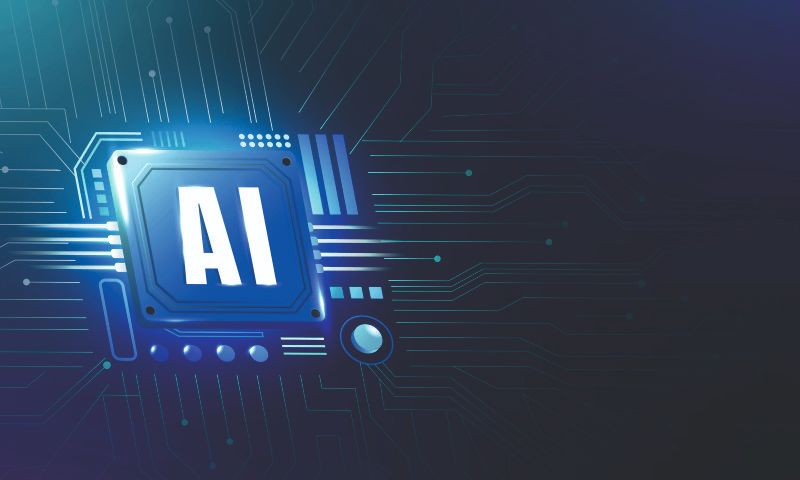AI Revolution: Transforming Businesses Across Industries in 2024 and Beyond

Artificial intelligence (AI) is no longer science fiction; it's a powerful force transforming the business landscape. From automating tasks to unlocking hidden insights, AI is empowering companies to operate more efficiently, make smarter decisions, and ultimately achieve significant growth. Let's delve into some of the key trends in AI that are shaping the future of business in 2024 and beyond:
1. Automating Repetitive Tasks: Boosting Efficiency and Productivity
AI excels at handling repetitive, rule-based tasks that can be time-consuming and tedious for human employees. Here's how businesses are leveraging automation:
- Customer Service Chatbots: AI-powered chatbots can answer basic customer queries, troubleshoot issues, and even schedule appointments, freeing up human agents for complex inquiries.
- Data Entry and Processing: Automate data entry tasks like form processing, invoice generation, and report creation, allowing employees to focus on higher-value activities.
- Robotic Process Automation (RPA): RPA automates tasks across different software applications, streamlining workflows and minimizing human error.
By automating repetitive tasks, businesses can improve operational efficiency, reduce costs, and free up employee time for more strategic endeavors.
2. AI-Powered Data Analytics: Unlocking Hidden Insights for Informed Decisions
The explosion of data presents both challenges and opportunities. AI can analyze vast amounts of data to identify patterns, predict trends, and generate actionable insights. Here's how businesses are benefiting:
- Market Research and Customer Segmentation: Gain a deeper understanding of customer behavior, preferences, and buying patterns to develop targeted marketing campaigns and personalize the customer experience.
- Predictive Maintenance: Analyze sensor data from equipment to predict potential failures and schedule maintenance proactively, minimizing downtime and ensuring smooth operations.
- Risk Management and Fraud Detection: Identify fraudulent activities and predict potential risks in real-time, allowing businesses to take preventive measures and safeguard their financial interests.
By leveraging AI-powered analytics, businesses can make data-driven decisions, optimize operations, and gain a competitive edge.
3. The Rise of Generative AI: Transforming Content Creation and Product Design
Generative AI can create entirely new content formats, from realistic images and videos to creative text formats. Here's how businesses are exploring this new frontier:
- Personalized Marketing Materials: Generate personalized marketing copy, product descriptions, or social media posts tailored to specific customer segments.
- Product Design and Prototyping: Utilize AI to generate initial design concepts or variations, accelerating the product development process and fostering innovation.
- Content Creation for Marketing and Social Media: Develop engaging and creative content like product descriptions, social media posts, or even video scripts using AI-powered tools.
Generative AI offers exciting possibilities for businesses to create fresh content, streamline marketing efforts, and accelerate product development cycles.
4. AI in Cybersecurity: Bolstering Defenses Against Evolving Threats
Cybersecurity threats are constantly evolving, and AI can play a crucial role in protecting businesses. Here's how AI is being used to combat cybercrime:
- Threat Detection and Analysis: AI algorithms can analyze network traffic and user activity to identify suspicious patterns and potential cyberattacks in real-time.
- Phishing and Malware Detection: AI can detect sophisticated phishing attempts and malware by analyzing email content, website behavior, and user interactions.
- Vulnerability Management: AI can identify vulnerabilities in software systems and predict potential security breaches, allowing businesses to take proactive measures to patch vulnerabilities.
By integrating AI into their cybersecurity strategy, businesses can significantly enhance their defenses and protect sensitive data from cyberattacks.
5. The Ethical Considerations of AI in Business
As AI becomes more pervasive, ethical considerations come to the forefront. Businesses must be mindful of these issues:
- Algorithmic Bias: Ensure AI algorithms are trained on unbiased data sets to avoid perpetuating discrimination or unfair practices.
- Transparency and Explainability: Strive for transparency in AI decision-making processes, allowing human oversight and intervention when necessary.
- Jobs and Automation: Prepare for a changing workforce landscape and develop strategies to reskill and upskill employees impacted by automation.
By addressing ethical considerations and prioritizing responsible AI implementation, businesses can ensure AI technology benefits society as a whole.
AI is rapidly transforming the business landscape, and those who embrace this technology will be well-positioned for success. By leveraging AI's capabilities for automation, data analysis, content creation, and cybersecurity, businesses can gain a competitive edge, optimize operations, and unlock new opportunities for growth. As AI continues to evolve, the possibilities are truly limitless.